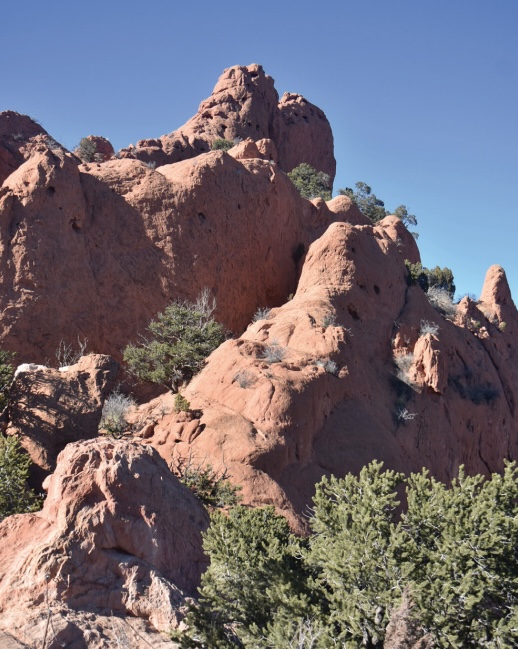The city of Colorado Springs communications department rarely misses a chance to brag about our fair city — so here’s one of the latest updates.
“The National Recreation and Park Association (NRPA) recently released a report showcasing the significant economic impact of the parks and recreation system in Colorado. According to the report, Colorado’s parks and recreation system generates an impressive $7 billion in economic benefits each year, ranking 6th among all 50 U.S. states.
“One of the key contributors to the economic success in Colorado Springs is Garden of the Gods Park. The report found that in 2022, Garden of the Gods Park alone contributed 4,055 jobs to the regional economy with a total employment-related income of $158 million.
“As the most visited attraction in the Pikes Peak region, Garden of the Gods Park welcomes approximately 4.5 million visitors a year. While entry is free for all visitors, the Park nevertheless makes a significant impact on the local economy with a net contribution of $272 million annually.”
Is the Garden of the Gods really a city park? Legally, “Public Parks are outdoor premises containing existing or proposed parks, including community parks, neighborhood parks, mini-parks, and urban parks that are currently or proposed to be owned or operated by the City or other governmental agency.”

That’s a pretty broad definition, but the Garden of the Gods is principally a visitor attraction, as well as a sort-of public park. By contrast, Red Rocks Open Space, Memorial Park and Monument Valley Park are public parks, not destinations. The garden was a destination long before it was a city park.
Colorado City founders Melancthon Beach and Rufus Cable named our red sandstone spires. Wandering through the magnificent landscape in 1859, Beach suggested that it would be a “capital place for a Biergarten.”
Cable disagreed. “Biergarten! Why, it is a fit place for the Gods to assemble. We will call it the Garden of the Gods.”
The garden was beautiful, but not useful. It was arid and rocky. There was no reliable source of water, no pastures, no farmland.
Gen. William Jackson Palmer’s friend Charles Elliott Perkins bought it intending to build a summer cottage, but decided to leave it in its natural state and free to visitors.
In 1909, his heirs gave it to the city on the condition that “it shall remain free to the public, where no intoxicating liquors shall be manufactured, sold, or dispensed, where no building or structure shall be erected except those necessary to properly care for, protect, and maintain the area as a public park.”
For much of the 20th century, the city didn’t pay much attention to the deed restrictions. The Hidden Inn abutted one of the most prominent sandstone spires, while several smaller enterprises were scattered around the park.
Eventually, they were all demolished, replaced by Lyda Hill’s privately funded Garden of the Gods Visitor Center just east of the garden’s entryway. The garden remains free to all, and the city does an admirable job of preserving its ambiance, wildlife and beauty — so what’s not to like?
The city does an admirable job.
Nothing, really! Voters have generously funded parks, trails and open space, and activists have tirelessly worked to acquire threatened properties.
The late Don Ellis worked for decades to get the city to acquire Red Rock Canyon, even putting out a monthly newsletter (the Red Rock Rag) to make his case. And Lee Milner (who died in December of 2022), was the fiercest, most persistent and most successful parks/trails/open space advocate in the city’s history.
Without Lee, we might not have Corral Bluffs, Blodgett Peak Open Space, Cheyenne Mountain State Park, Union Meadows, Airport Prairie or High Chaparral.
And although millions visit the garden annually, it’s still reasonably pristine. Its preservation, together with Palmer-dedicated parks, inspired Lee, Don and thousands of others to preserve and enhance the city we all love … not bad for a bunch of rocks!
